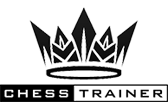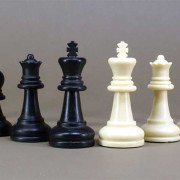Online Chess Training: Strategies for Improving Your Skills from Anywhere
In today’s digital age, the realm of chess training has undergone a significant transformation. With the advent of online platforms, aspiring chess players now have unparalleled access to resources and training materials right at their fingertips. Whether you’re a novice looking to learn the basics or a seasoned player aiming to refine your skills, online chess training offers a myriad of opportunities for improvement.
Choosing the Right Online Platform
When embarking on your journey to enhance your chess prowess, selecting the appropriate online platform is paramount. Factors such as user interface, instructional content, community engagement, and affordability should all be taken into consideration. Popular platforms like Chess.com, Lichess, and Chess24 each have their unique features and offerings, catering to different preferences and skill levels.
Setting Goals for Improvement
Before delving into your training regimen, it’s essential to establish clear and achievable goals. Whether it’s improving your rating, mastering specific openings, or enhancing your endgame technique, setting SMART (Specific, Measurable, Achievable, Relevant, Time-bound) objectives provides direction and motivation throughout your journey.
Developing a Structured Training Plan
A well-rounded training plan should encompass a variety of aspects, including tactics, strategy, and endgame proficiency. Structuring your practice sessions to cover these fundamental areas ensures a comprehensive approach to skill development. Additionally, consistency is key; regular practice sessions, even if brief, yield more significant improvements over time.
Utilizing Resources Effectively
The wealth of resources available online can be overwhelming, but knowing how to leverage them effectively is crucial. Tutorials, instructional videos, master games analysis, and participation in online forums and communities all contribute to a well-rounded learning experience.
Focusing on Tactics and Strategy
Chess is a game of tactics and strategy, and honing these skills is essential for success on the board. Tactical puzzles and exercises help sharpen your ability to spot opportunities and threats, while studying strategic concepts enhances your overall understanding of the game.
Improving Endgame Skills
The endgame often decides the outcome of a chess match, making it a vital area of study for aspiring players. Mastering endgame principles and practicing common endgame scenarios are essential for securing victories in tight contests.
Reviewing and Analyzing Your Games
Self-reflection is a crucial component of improvement in chess. Reviewing your games, both wins, and losses, allows you to identify patterns, mistakes, and areas for growth. Utilizing chess engines and analysis tools provides valuable insights into your gameplay and helps refine your strategic decision-making.
Maintaining Consistency and Patience
Progress in chess, like any skill, takes time and dedication. It’s essential to understand that improvement is often gradual, and setbacks are inevitable. Maintaining consistency in your training regimen and cultivating patience are key virtues on the path to mastery.
Overcoming Challenges and Adversity
Chess, by its very nature, is a game of challenges and obstacles. Dealing with losses, setbacks, and periods of stagnation is an integral part of the learning process. Developing resilience and adopting a growth mindset are essential for overcoming adversity and continuing to progress.
Seeking Feedback and Mentorship
Feedback from peers, mentors, or coaches can provide invaluable insights into your gameplay and help identify areas for improvement. Constructive criticism and guidance from experienced players can accelerate your growth and prevent you from developing bad habits.
Balancing Training with Other Activities
While dedication to chess training is essential, it’s equally important to strike a balance with other aspects of life. Avoiding burnout by incorporating breaks, pursuing other interests, and maintaining social connections ensures a healthy and sustainable approach to improvement.
Tracking Progress and Celebrating Milestones
Tracking your progress through performance metrics such as rating improvement, tournament results, or personal achievements provides tangible evidence of your growth. Celebrating milestones along the way reinforces your commitment and motivates you to continue striving for excellence.
Staying Updated with Chess Trends and Strategies
The world of chess is dynamic, with new strategies, tactics, and trends constantly emerging. Staying informed about recent developments, following top-level tournaments, and adapting your playstyle accordingly ensure that you remain competitive and versatile in your approach.
Online chess training offers a wealth of opportunities for players of all levels to improve their skills and deepen their understanding of the game. By following a structured training plan, leveraging resources effectively, and maintaining consistency and patience, aspiring chess enthusiasts can unlock their full potential and enjoy the rewards of mastery.
FAQs
- How often should I practice chess to see improvement?
- Consistency is key. Aim for regular practice sessions, even if they’re brief, to maintain momentum and see steady progress.
- Are online chess platforms suitable for beginners?
- Absolutely! Many online platforms offer tutorials, beginner-friendly features, and opportunities for practice matches against players of similar skill levels.
- How can I overcome a plateau in my chess improvement?
- Plateaus are a natural part of skill development. Consider seeking feedback from peers or coaches, exploring new training methods, or taking a short break to refresh your perspective.
- Is it essential to have a coach or mentor for chess training?
- While having a mentor or coach can be beneficial, it’s not strictly necessary. There are plenty of resources available online for self-guided improvement.
- What are some effective ways to stay motivated during training?
- Setting achievable goals, tracking your progress, and celebrating milestones are all effective strategies for staying motivated on your chess journey.





